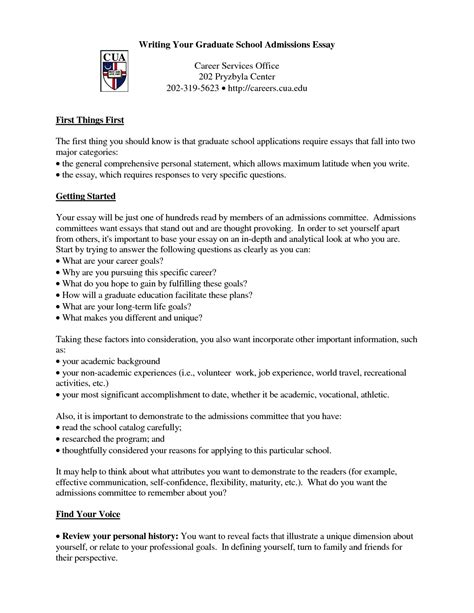Embarking on a master’s program is a significant decision that requires careful planning and execution. The timing of your application can have a substantial impact on your chances of admission, funding availability, and overall success in the program. This comprehensive guide will navigate you through the intricate decision-making process, providing essential insights and guidance to help you determine the optimal time to apply for a master’s program.

When to Apply
Deadlines
Most universities establish specific application deadlines for master’s programs. These deadlines typically fall between December and March for fall admission and July and September for spring admission. It is crucial to adhere to these deadlines as late applications may be disadvantaged or even rejected.
Admissions Timeline
The admissions process for master’s programs can be time-consuming, involving multiple stages of evaluation and decision-making. Admissions committees typically follow a general timeline:
- Fall Application: Applications submitted by December-March are usually reviewed in February-April.
- Spring Application: Applications submitted by July-September are reviewed in October-November.
Early Decision
Some universities offer an early decision option, allowing applicants to submit their application materials earlier and receive an admissions decision within a shorter timeframe. This option can be beneficial for students who are highly confident in their qualifications and eager to secure their enrollment. However, it also limits the applicant’s ability to compare offers from multiple universities.
Choosing the Right Time
Matching Your Goals
The ideal time to apply for a master’s program depends on your individual goals and circumstances. If you have a clear career path in mind and are seeking immediate employment in a specialized field, applying for the fall admission may be more suitable. If you require more time to prepare or enhance your application, spring admission may provide additional flexibility.
Availability of Funding
Funding opportunities, such as scholarships, fellowships, and teaching assistantships, can significantly reduce the financial burden of graduate education. These opportunities typically have specific application deadlines, which should be considered in your application planning.
Personal Circumstances
Your personal circumstances, such as work obligations, family responsibilities, and other commitments, can also influence the timing of your application. It is crucial to assess your availability and ensure that you can fully engage in the demands of a master’s program before you apply.
Pain Points and Motivations
Pain Points
- Missed Application Deadlines: Failing to meet application deadlines can result in missed opportunities and the need to delay your education plans.
- Limited Funding Availability: Funding opportunities may become scarce as the application cycle progresses, reducing your chances of financial support.
- Overlapping Commitments: Juggling work, family, or other responsibilities with a graduate program can lead to stress and academic challenges.
Motivations
- Career Advancement: A master’s degree can significantly enhance your career prospects and open doors to higher-level positions and specialized roles.
- Intellectual Growth: Graduate education provides opportunities for in-depth research, collaboration with faculty, and intellectual stimulation.
- Personal Fulfillment: Completing a master’s program can bring a sense of accomplishment, boost your confidence, and broaden your perspectives.
Common Mistakes to Avoid
- Applying Too Late: Submitting your application after the deadline can severely limit your chances of admission.
- Not Researching Funding: Missing funding deadlines or applying without considering funding availability can result in financial difficulties.
- Overestimating Your Qualifications: Applying to programs that are not aligned with your background or interests can lead to rejection or an underwhelming experience.
- Not Seeking Feedback: Failing to solicit feedback from mentors, professors, or admissions professionals can compromise the quality of your application.
- Rushing the Process: Applying without carefully considering your goals, finances, and timing can lead to disappointment and wasted effort.
Tips and Tricks
- Start Planning Early: Begin researching potential programs and gathering application materials well in advance of the deadlines.
- Attend Virtual Fairs: Participate in online events hosted by universities to learn about their programs, meet faculty, and ask questions.
- Seek Mentorship: Identify professors, advisors, or professionals in your field who can provide guidance and support throughout the application process.
- Review Application Materials Thoroughly: Proofread all application documents, including your personal statement, resume, and letters of recommendation, to ensure accuracy and clarity.
- Consider a Second Opinion: Ask a trusted friend, family member, or mentor to review your application and provide feedback before submission.
Conclusion
Applying for a master’s program is a pivotal step in your academic and career trajectory. By carefully considering the factors discussed in this guide, you can determine the optimal time to apply and increase your chances of success. Remember, the journey to graduate education is not a race but a marathon. With proper planning, preparation, and perseverance, you can achieve your goals and embark on an enriching and rewarding educational experience.
Additional Resources
- National Center for Education Statistics (NCES): https://nces.ed.gov/
- Council of Graduate Schools (CGS): https://cgsnet.org/
- Graduate Management Admission Council (GMAC): https://www.gmac.com/
